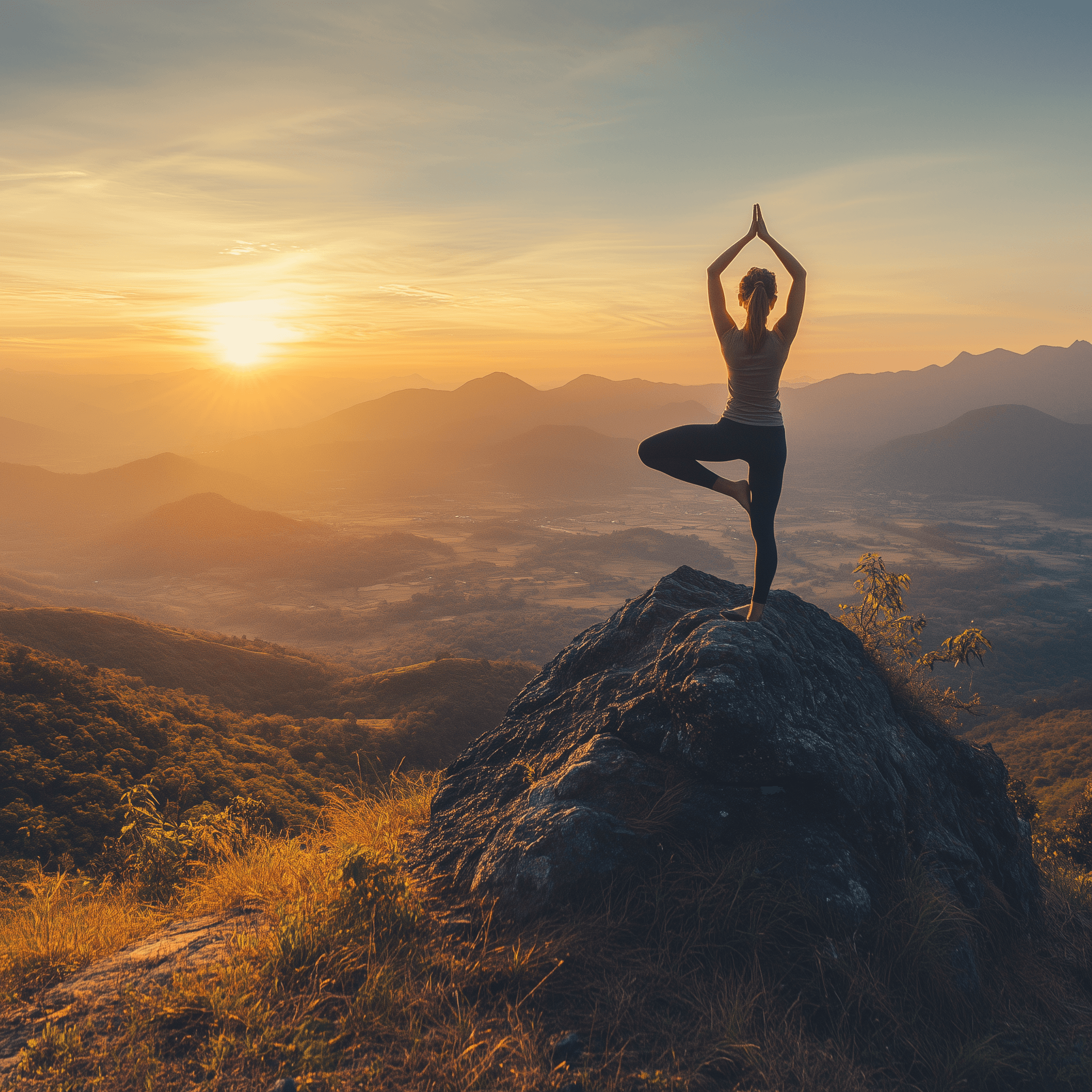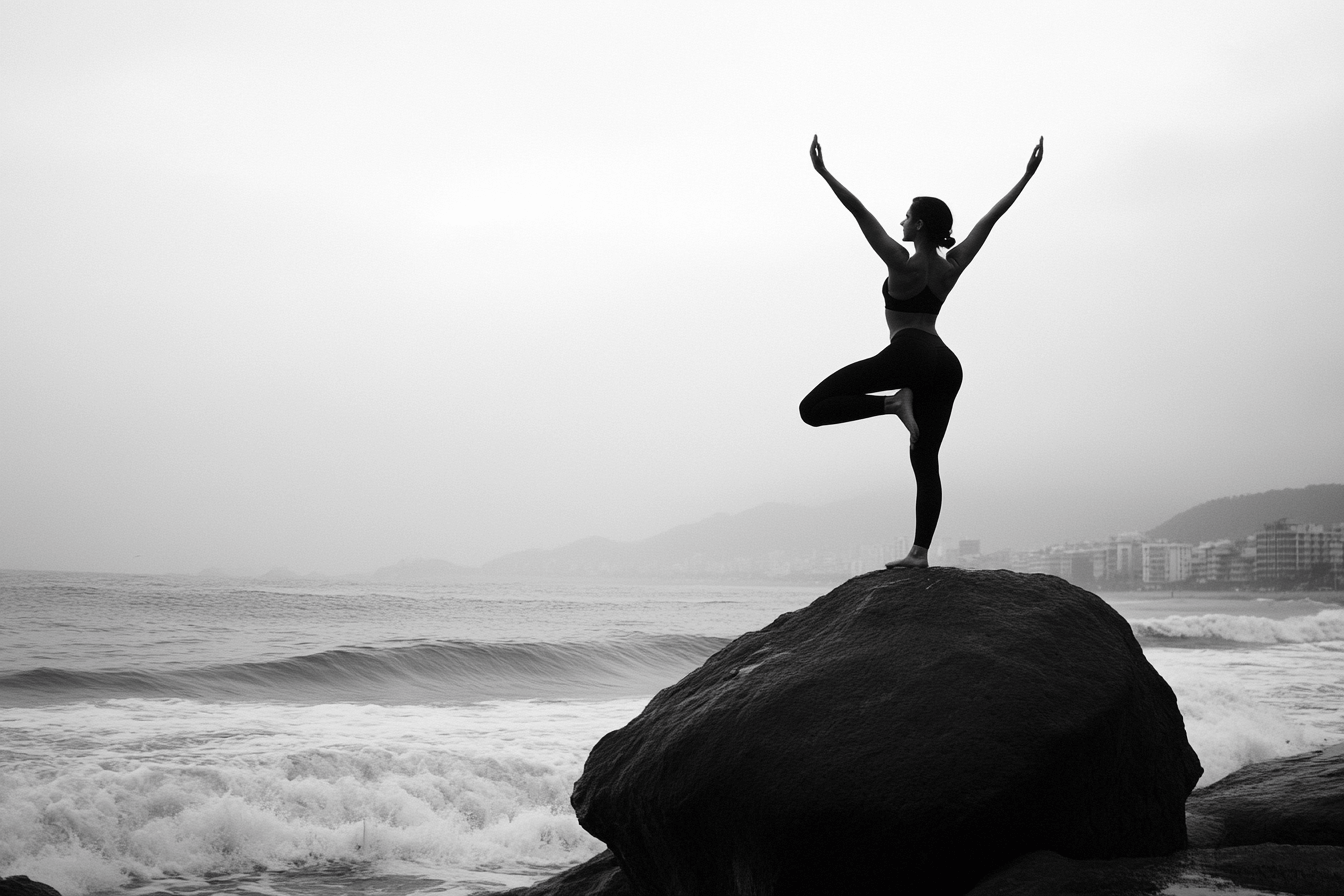Have you ever felt disconnected from your body, like you’re just a floating head? You’re not alone. Many of us struggle with body awareness, but the good news is that it’s a skill you can improve. In this comprehensive guide, we’ll explore how to get better body awareness and why it matters for your overall health and well-being.



What is Body Awareness?
Body awareness refers to your ability to perceive and understand your body’s position, movements, and sensations. It’s about tuning into your physical self and understanding what’s going on below the neck. This skill is crucial for better balance, stability, and even weight management.
The Three Components of Body Awareness
- Proprioception: This is your sense of how your body parts are oriented and move in space
- Interoception: This refers to your awareness of internal bodily sensations, like hunger, thirst, and your heart’s rhythm
- Vestibular Awareness: This plays a pivotal role in balance and spatial orientation, helping with head stability and movement
Why Body Awareness Matters
Improving your body awareness can have far-reaching benefits:
- Better Balance and Stability: When you know and feel where your body is in space, you’re better able to direct it to do what you want it to do
- Weight Management: There’s evidence that body awareness can be a beneficial tool for weight management. One study showed that people with low body awareness were more likely to eat in the absence of hunger, which was related to obesity risk, highlighting the importance of mindful eating.
- Pain Management: Evidence suggests that body awareness can reduce pain when approached mindfully
- Improved Mental and Emotional Well-being: Body awareness can lead to greater self-acceptance, vitality, and lower sensory pain
Simple Techniques to Boost Your Body Awareness
1. The Body Scan Hack
Here’s a simple yet effective technique:
- Lie down and close your eyes.
- Mentally “scan” from your toes to your head.
- Notice any tension, aches, or just how each part feels.
- Do this for 10 minutes before bed.
This practice can dramatically increase your body awareness over time
2. Move It or Lose It
Movement is key to improving body awareness. You don’t need to be a yoga guru or a gym rat. Just move:
- Dance in your kitchen
- Take a walk
- Stretch while watching TV
The point is to feel how your body moves in space, enhancing your spatial awareness. Nearly all physical exercise can increase body awareness, especially if you’re intentional about it
3. Breathe Like You Mean It
Breathing is something we do all day, but how often do we practice mindful breathing and pay attention to it? Try this:
- Put one hand on your chest and one on your belly.
- Take a deep breath.
- Notice which hand moves more.
This simple exercise can tell you a lot about how you’re breathing and where tension might be hiding
4. Mirror, Mirror on the Wall
This might sound a bit unconventional, but it’s effective:
- Stand in front of a mirror.
- Really look at yourself (not to criticize, but to observe).
- Notice how you stand, how your weight shifts.
It’s like meeting your body for the first time
Advanced Techniques for Better Body Awareness
1. Balance Exercises
Try these simple balance exercises:
- Stand on one foot
- Walk in a straight line
- Try balancing with your eyes closed
These exercises activate your proprioceptive and vestibular systems, increasing your body awareness
2. Yoga and Tai Chi
These practices are fantastic for linking breath and movement, helping you become more present in your body and mind. They offer benefits like:
- Stress relief
- Improved mood
- Better sleep
3. Walking Backward
As weird as it sounds, walking backward forces you to connect to your body in a new way. Just make sure you’re in a safe environment first.
Body Awareness Activities for Different Settings
At Home
Try these proprioception activities to help with body awareness at home:
- Carry full laundry baskets mindfully, paying attention to how you shift your weight.
- Change sheets
- Pull weeds
- Carry in grocery bags
- Wash windows
- Vacuum or mop floors
- Rearrange furniture
In the Classroom or Office
For those spending long hours at a desk, try these:
- Take regular stretch breaks
- Practice seated yoga poses
- Use a standing desk for part of the day
- Do desk push-ups (against the edge of your desk)
- Practice ankle rotations and foot taps under your desk
During Play or Exercise
Incorporate these activities into your workout or playtime:
- Hula-hooping
- Jumping on a trampoline or with a jump rope
- Playing Twister
- Doing obstacle courses
- Practicing sports that require precise body control (like gymnastics or martial arts) can significantly improve balance and body awareness.
The Connection Between Body Awareness and Mental Health
Improving body awareness isn’t just about physical benefits. It may also have a significant impact on your mental health:
- Reduced Anxiety: By focusing on bodily sensations, you can ground yourself in the present moment, reducing anxiety about the future.
- Improved Emotional Regulation: Better body awareness can help you recognize the physical signs of emotions earlier, allowing for better emotional management.
- Enhanced Self-Esteem: As you become more in tune with your body, you may develop a greater appreciation for what it can do, boosting self-esteem.
- Stress Reduction: Body awareness techniques like deep breathing and progressive muscle relaxation can activate the body’s relaxation response, reducing stress.
- Better SleepIncreased body awareness can help you recognize tension and release it, potentially improving sleep quality and fostering mindfulness.
Overcoming Challenges in Developing Body Awareness
While improving body awareness can be transformative, it’s not always easy. Here are some common challenges and how to overcome them:
- Impatience: Remember that developing body awareness is a process. Be patient with yourself and celebrate small improvements.
- Discomfort: Sometimes, becoming more aware of your body can bring attention to discomfort or pain. Instead of avoiding this, use it as information to address underlying issues.
- Inconsistency: Like any skill, body awareness improves with regular practice. Try to incorporate body awareness exercises into your daily routine.
- Distractions: In our technology-driven world, it’s easy to get distracted. Set aside specific times for body awareness practices, free from digital interruptions.
- Negative Body Image: For some, focusing on the body can trigger negative thoughts. Remember that body awareness is about function and sensation, not appearance.
Cultivating a Positive Relationship with Your Body
While it’s important to recognize and challenge myths about body image, it’s equally valuable to develop practical habits that foster a healthier relationship with your body. Here are some non-medical suggestions that many people have found helpful:
- Practice gratitude for your body’s functions: Instead of focusing solely on appearance, try appreciating what your body does for you each day, like breathing, moving, or sensing the world around you.
- Limit social media consumption: Be mindful of how certain social media content makes you feel about your body, and consider unfollowing accounts that consistently make you feel negative.
- Engage in joyful movement: Find physical activities you genuinely enjoy, rather than exercising solely for appearance-related goals.
- Wear clothes that make you feel comfortable: Choose clothing that feels good on your body and aligns with your personal style, rather than trying to fit into a particular trend.
- Practice positive self-talk: When you catch yourself thinking negatively about your body, try to reframe those thoughts in a more neutral or positive way.
- Surround yourself with supportive people: Spend time with friends and family who appreciate you for who you are, not just how you look.
- Explore new hobbies and interests: Developing skills and passions can help shift focus away from appearance and towards your unique abilities and interests.
Remember, developing a healthier relationship with your body is a journey, and it’s okay to have ups and downs along the way. These suggestions are meant to complement, not replace, any professional advice or treatment you may be receiving.
Disclaimer: The information provided in this article is for general educational purposes only and is not intended as a substitute for professional medical advice, diagnosis, or treatment. Always seek the advice of your physician or other qualified health provider with any questions you may have regarding a medical condition or before starting any new health regimen. This article does not recommend or endorse any specific tests, physicians, products, procedures, opinions, or other information that may be mentioned.
Conclusion: Embracing Your Body-Mind Connection
Improving your body awareness is a journey of reconnecting with your physical self. It’s about learning to listen to the subtle signals your body sends and responding with kindness and understanding. By practicing the techniques outlined in this guide, you can enhance your body awareness, leading to improved physical health, mental well-being, and overall quality of life. Remember, the key to better body awareness isn’t perfection—it’s consistency. Start small, be patient with yourself, and celebrate every step forward in your journey to get better body awareness. Your body has been trying to talk to you all along. Now, it’s time to listen.







